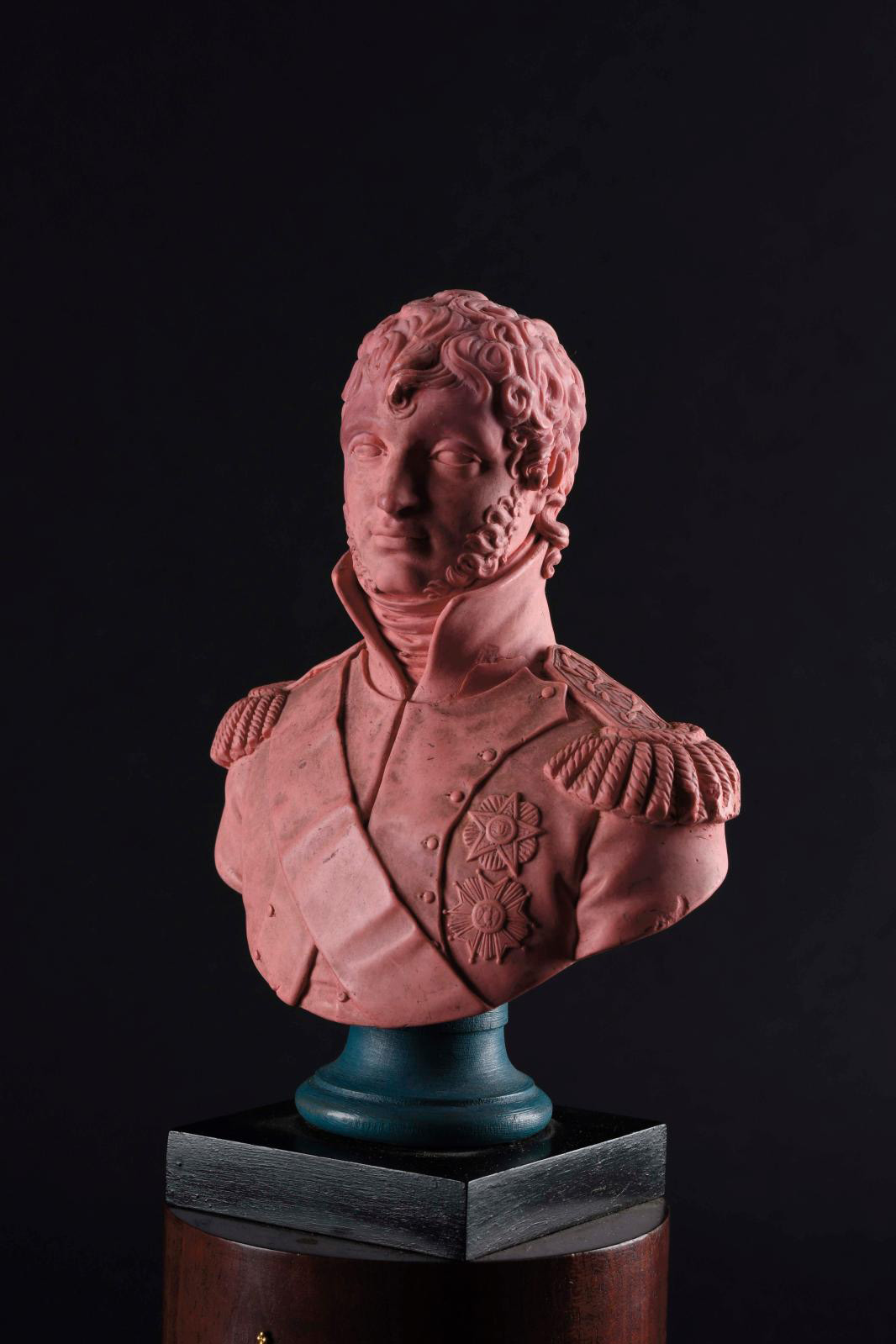by Caroline Legrand

Martin Guillaume Biennais (1764-1843), pink wax model of the bust of Joachim Murat wearing the Grand Cordon, mahogany base with Murat's initials, h. 12.5 cm/4.9 in (without base). Estimate: €8,000/12,000
Following Napoleon I's second marriage in 1810 to Marie-Louise of Austria, Martin-Guillaume Biennais decided to create a series of busts of the imperial family and their closest supporters. Staunchly loyal to the French Emperor ever since he had designed a travel kit (also known as a 'necessary') on credit for Napoleon (at the time a general preparing for the Italian campaign), the goldsmith paid tribute to the members of this invaluable clan, of whom Napoleon made judicious use, placing each of his brothers, sisters and children at the head of the countries in his empire: Hortense and Louis in Holland, Jérôme in Germany, Eugene, Caroline and Elisa in Italy and Joseph in Spain. Biennais' small gilt bronzes in their likeness, around 7.8 inches high (20 cm), standing on columns marked with the initials of the person in depicted, were named "Napoléonides". There are 28 of them, according to the inventory of specialist Guy Ledoux-Lebard. He also included three pink wax busts used as models for the goldsmith to cast. In addition to those of Jérôme, Marie-Louise and Caroline, this sale, featuring 150 lots that come directly from the descendants of one of Biennais' daughters... click here to read more.




